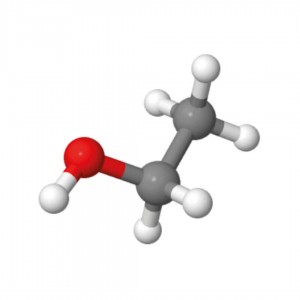
Ethanol; is an alcohol derived from grains like corn and tubers of cassava[i]. It is emerging as an important motor fuel in view of the Kyoto Protocol Agreement to which Nigeria is a signatory. Ethanol is easy to use in combustion engines, requiring none to minor modifications, it has a higher octane rating compared to gasoline. Ethanol is environmentally friendly because it has lower air pollution, reduces global warming, and provides an opportunity for Nigeria to qualify for carbon credits under the Clean Development Mechanism.
Fuel ethanol is popular for its consumer benefits. Consumers would use a high performance, cleaner ethanol-blended gasoline. This helps in eliminating the use of lead additives and consequently helps in reducing vehicular pollution. The economic activity attributable to the ethanol industry will generate additional income tax revenue to government. Research has also shown that the ethanol from palm wine is one of the best on earth, for cosmetics and alcohol manufacturers[ii]. Investments will be made in ethanol production facilities; the ethanol industry will be responsible for direct and indirect jobs creating increased household income annually. This will generate multiplier effect Lo other sectors of the economy, cause increased economic development, particularly in the rural areas, free more crude oil for export, diversified energy source. Its agricultural benefits include that sugercane/cassava farmers will benefit from increased income. Also, here will be increased crop demand created by the ethanol industry will increase crop value. Energy Benefits includes that ethanol will reduce the demand for gasoline imports. Production from sugarcane also generates co-products (bagasse) that can be used as feedstock to power generation units. There are environmental benefits too. Ethanol is low in reactivity and high in oxygen content (35 percent) that helps complete combustion of fuel and thus reduces harmful tailpipe emissions and ozone pollution.It also reduces particulate emissions that pose a health hazard. Ethanol is a safe replacement for toxic octane enhancers in gasoline such as benzene, toluene, xylene and MTBE[iii].
The NNPC automotive biomass ethanol programme’s main objective is to develop the fuel ethanol industry in Nigeria by producing fuel grade ethanol that will be blended with petrol or gasoline in proportions not exceeding 10 per cent volume. The resulting new fuel, which is to be called ‘Green Petrol’ or ‘Green Gasoline’ (some countries call it Gasohol) will reduce the volume of carbon dioxide (C02) released into the atmosphere, improve air quality and ultimately reduce global warming and its catastrophic consequences. Globally, the transportation sector is responsible for almost one quarter of C02 emissions. This share is increasing annually, particularly in developing countries with exploding urban population. This unabated growth, coupled with side effects on health impact, noise pollution, congestion etc. make it imperative for all nations to reduce emissions from the transport sector. This is ethanol produced from biological sources known as biomass. These biomass feedstocks may include agricultural crops and agricultural residues, trees, grasses, animal waste, municipal solid waste and indeed all organic materials that capture and store solar energy. This wealth of stored energy can be extracted by a combination of physical, biological and chemical processes. During photosynthesis, plants combine carbon dioxide from the air and water from the ground to form carbohydrates, which form the building blocks of biomass. The Biomass ethanol programme is making use of sugarcane and cassava as feedstock for the production of ethanol.
[i] The News March 22, 2004
[ii] Punch June 10, 2017
[iii] The News April 16, 2007





















